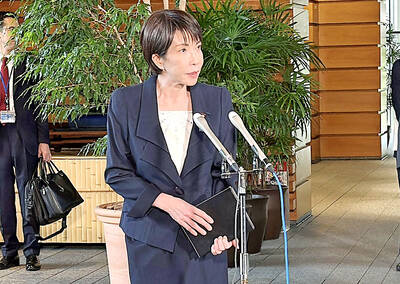In the past two years, there have been at least 30 major pipeline explosions and leaks of oil and gas, and possibly hundreds of smaller ones. Many have led to injuries and deaths, but there has been nothing on the scale of the Nairobi explosion since 2006, when about 270 people died after a vandalized oil pipeline exploded in the Abule Egba district of Lagos, in Nigeria.
The explosions mostly take place in poor countries because international oil and gas companies often fail to bury or protect their pipelines as they would have to do by law in rich countries. The easily accessible pipes, which often run through slums and informal settlements in burgeoning cities, are tempting to desperately poor communities, who often have no electricity and must rely on oil lamps for lighting and power.
Groups of youths drill into the pipes or sabotage the pumping stations. Many have set up rudimentary refineries, where the stolen crude oil is heated up to make “bush” diesel good enough to run generators and older cars. Many of these DIY refineries explode, and fires -sometimes destroy large areas.
The oil companies say the scale of pipeline theft is increasing. Shell Corp has claimed that millions of liters of crude oil are stolen from its pipes every year in the Niger delta. China Petroleum & Chemical Corp said that criminals drilled into its pipelines 19,804 times between 2002 and 2009, causing the company to lose 47,000 tonnes of oil. Companies pay millions of pounds a year to guard pipelines.
However, organized crime has moved into oil theft, and is now thought to be paying groups to break into oil industry equipment and steal many thousands of liters at a time. Tankers or barges are then filled and the oil is exported — often with the help of corrupt bureaucrats and police forces.
Pipelines in urban areas are also vulnerable to construction companies, who often rupture pipes as they clear land for development. Many pipelines are now 40 years old and heavily corroded, leading to natural leaks of gas and oil.
Pipelines have also become easy targets for saboteurs. Occidental’s Cano Limon pipeline, in Colombia, was sometimes attacked more than 100 times a year by FARC rebels in the 1990s. Last month, Libyan rebels turned off a valve on a major pipeline south of Tripoli and poured cement over it.
Many companies now pay the military to protect their oil pipelines. BP has, in the past, employed the Colombian army; Exxon Mobil has declared a large area around the Chad-Cameroon pipeline out of bounds; and Shell pays contractors to protect its lines throughout Nigeria.

‘MOTHER’ OF THAILAND: In her glamorous heyday in the 1960s, former Thai queen Sirikit mingled with US presidents and superstars such as Elvis Presley The year-long funeral ceremony of former Thai queen Sirikit started yesterday, with grieving royalists set to salute the procession bringing her body to lie in state at Bangkok’s Grand Palace. Members of the royal family are venerated in Thailand, treated by many as semi-divine figures, and lavished with glowing media coverage and gold-adorned portraits hanging in public spaces and private homes nationwide. Sirikit, the mother of Thai King Vajiralongkorn and widow of the nation’s longest-reigning monarch, died late on Friday at the age of 93. Black-and-white tributes to the royal matriarch are being beamed onto towering digital advertizing billboards, on

Indonesia was to sign an agreement to repatriate two British nationals, including a grandmother languishing on death row for drug-related crimes, an Indonesian government source said yesterday. “The practical arrangement will be signed today. The transfer will be done immediately after the technical side of the transfer is agreed,” the source said, identifying Lindsay Sandiford and 35-year-old Shahab Shahabadi as the people being transferred. Sandiford, a grandmother, was sentenced to death on the island of Bali in 2013 after she was convicted of trafficking drugs. Customs officers found cocaine worth an estimated US$2.14 million hidden in a false bottom in Sandiford’s suitcase when

POWER ABUSE WORRY: Some people warned that the broad language of the treaty could lead to overreach by authorities and enable the repression of government critics Countries signed their first UN treaty targeting cybercrime in Hanoi yesterday, despite opposition from an unlikely band of tech companies and rights groups warning of expanded state surveillance. The new global legal framework aims to bolster international cooperation to fight digital crimes, from child pornography to transnational cyberscams and money laundering. More than 60 countries signed the declaration, which means it would go into force once ratified by those states. UN Secretary-General Antonio Guterres described the signing as an “important milestone,” and that it was “only the beginning.” “Every day, sophisticated scams destroy families, steal migrants and drain billions of dollars from our economy...

PRESSURE: Trump is expected to demand that Tokyo raise its defense spending, but Japan’s new foreign minister said the amount is less important than how it is spent Japan plans to show its determination to further build up its defense to rapidly adapt to changing warfare realities and growing tension in the region when US President Donald Trump visits Tokyo next week, Minister of Foreign Affairs Toshimitsu Motegi said. Japanese Prime Minister Sanae Takaichi’s administration is also finalizing a purchase package, including US pickups, soybeans and gas, to present to Trump, but would not commit to any new defense spending target at the meeting, a source with knowledge of the preparations said. The two leaders are to sit down in Tokyo on Monday and Tuesday next week during Trump’s first